This is part of a new series of interviews featuring indie authors. These interviews will drop once or twice a week. If you’d like to be part of this series, please contact me at Sarah (at) bookwormblues (dot) net. Please support the authors by clicking on the affiliate links in the interview, spread the word, and, of course, buy their books.
We’re all in this together, you know?
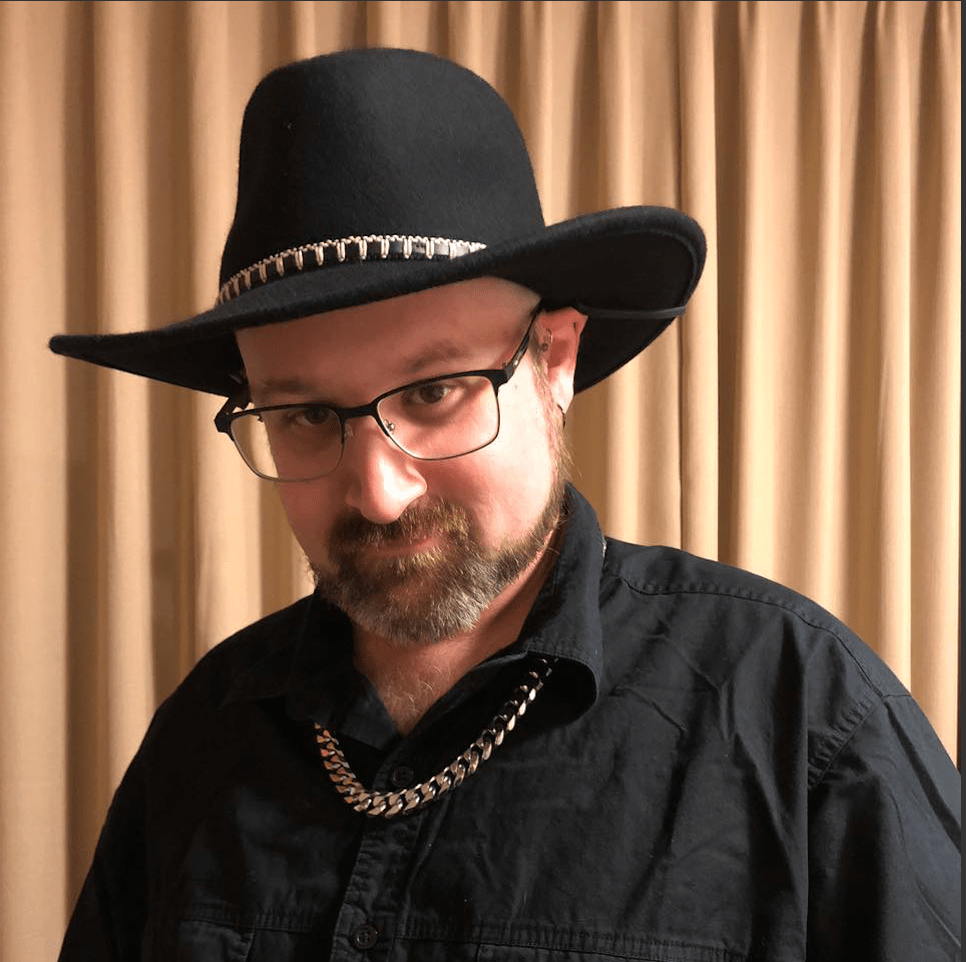
About the Author
Jesse Teller fell in love with fantasy when he was five years old and played his first game of Dungeons & Dragons. The game gave him the ability to create stories and characters from a young age. He started consuming fantasy in every form and, by nine, was obsessed with the genre. As a young adult, he knew he wanted to make his life about fantasy. From exploring the relationship between man and woman, to understanding the qualities of a leader or a tyrant, Jesse Teller uses his stories and settings to study real-world themes and issues.
Links
Facebook Author Page
Facebook profile
Instagram
Goodreads
Twitter
Website
Newsletter
Amazon
First off, tell me about your book(s).
I bet you hear this all the time. I would imagine not many people describe their book and say something like, I’m pretty bored with this one. I would imagine that often times you hear, I’m really excited about this book. Well, I’m really excited about this book. Plight of Madness is the third book of The Madness Wars series. There’s still one book coming out to finish out the series. And not many people get as jazzed about one of the middle volumes as I am about this book. All of my work is interconnected, so if you read a series of mine, you get a full story and you can stop there. But if you read another series, you’re gonna find characters from the first one, and events that happen in the first one. You’re gonna see that one of the side stories in one series finishes in a different series. Origin stories for characters you already know will be shown in a book that just came out. My writing has this twisting, turning narrative, criss-crossing storylines, this sort of thing. It’s exactly what you would expect from a madman.
So, I guess the thing I’m so excited about with this book, is that in the book Hemlock, which came out April 15, 2018, you see the tattered remains of a romance. Plight is the book that romance starts in. In Crown, the third book of The Manhunters series, you see a fully formed and functioning wizard coven. And in Plight, you get to see its origins. Storylines are continued from the short story collection Legends of Perilisc. A character that’s easily overlooked in Hemlock and Crown is shown in Plight, and you see the real reason why you should have been excited about her the whole time.
It’s as if you’ve been working a puzzle, a large puzzle, and one section of the puzzle is very incomplete until you slide this piece in. Then so much of every other book you’ve read by Jesse Teller slides into place. But at the same time, in order to enjoy Plight of Madness, the only books you have to have read, are Onslaught of Madness and Wrath of Madness. However, if you have read them all, if you have read the entire Jesse Teller collection, Plight of Madness is one payoff after the next.
What makes you and your books unique? Shine for me, you diamond.
My books were written by a man who’s clinically insane. Eighty percent of my brain spends its time connecting storylines and threads from all different directions all over my world. Waking, sleeping, eating, showering, with every activity I commit myself to, at least forty percent of my brain is working on fantasy. It never stops for me. I have to do this job as a coping mechanism for the reality I live in. If I wasn’t a fantasy writer, I’d be an inmate with a straight jacket. I have a tenuous hold on my life. I’m balancing on a beam, and that beam is my world. Without it there is only howling and screaming.
Let’s celebrate. What’s one of the best things that’s happened to you as an author? Don’t be shy.
There are a few readers who have read everything I’ve written. A few people who have looked at all of it, and they see what I’m doing. They see the beauty of it and the depths of its insanity. And every single reader that has read everything I’ve put out has said to me that they are a devoted fan for life. Everybody who’s read it all cannot look away. So one series and one book may bring me a fan, but all of the books, if you read all of the books, you become obsessed. And every time you reread them all, you see things you missed.

What are you working on now/any future projects you want to talk about?
I’ll give you the short. I’ve written 34 books, all in the same world. All interconnected. The plan is 68. They are organized into three acts. Act One is 28 books. It creates the world, shows the great major powers. Act Two is 31 books and it shows the absolute destruction of all law and order, and the world itself. Leaving what used to be beautiful and powerful into a post-apocalyptic reality. The last nine books decide the fate of heaven, the world of man, and hell. The thing that’s so taxing on my mind right now is that as I am releasing the first act, and the world around me and my readers are watching me build the world, when I go to my desk at night, I’m destroying it. So as we talk in this interview about the interesting things being put together and the interesting people coming forward, I am at night busy telling the story of the fall of all of it.
Let’s talk CRAFT
What is one thing that you’ve learned about yourself as a writer?
I am mentally disabled, suffer from bipolar, dyslexia, PTSD, and DID (multiple personality disorder). Writing is about the only job my mind is capable of. I can’t hold a 9-5. I can’t be in public for long periods of time. I can’t be counted on to hold conversations, to get out of bed. Sanity is a slipping thing for me, like stacking raw meat. I had no other path. Part of my disorder is weekly, daily, hourly hallucinations. As I’m sitting here, my Rottweiler is not covered in fur, but in the blooms of flowers of all different colors. When she gets thirsty, the flowers close. When she drinks, they bloom. My other dog, my mix breed, is made out of solid ice, and he’s steaming.
See, I am not sane. My wife knows it. My kids know it. One day I’m perfectly normal, the next day I can’t walk because there is no floor, just a solid pit of black beneath me. And I have to hold onto my wife’s shoulder as she walks me from the dinner table to the bathroom. The world around me is filled with insanity, and I’m a certified lunatic. Writing is the only course for me because my hallucinations can be used, can be harnessed, to create a fanciful world. The reader reads my world and is transported to a place of darkness, villainy, despair and hope. My reader experiences all of these things, and then they close the book and go to bed. They close the book and cook dinner for their family. The reader visits my world. But I live there. I’m trapped there. Writing is the only course for me because it’s the only way to communicate to my loved ones how I truly think and feel.
What about self-publishing appeals to you? Why did you choose this particular path to publication?
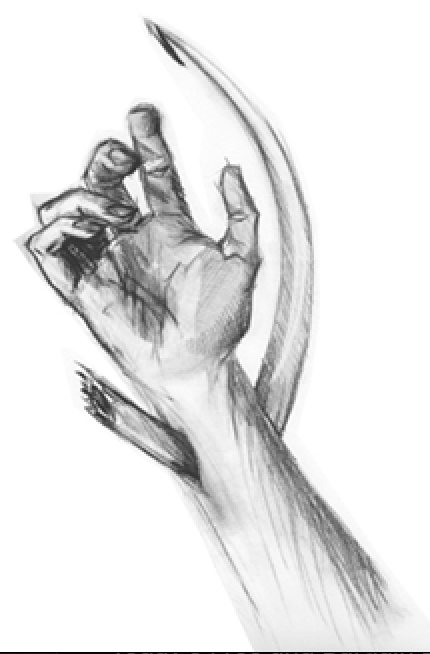
For me, self-publishing was all about believing in my book. I did seven drafts of my debut novel Liefdom, spent $3000 getting it edited, spent $1800 at a writers’ workshop to learn how to hone it, shape it, hammer it into the story I wanted to tell. I had over eight beta readers. The creation of it spanned over five years. I had all the little things. I was proud of the character, proud of the setting, enjoyed conversations I’d had with others about the book. My wife had done a drawing. She’s a classically trained artist and she had done a drawing of the main character’s hand and weapon. I love the inspiration, the concept for the book had been inspired by an odd movie night where I watched A Midsummer Night’s Dream and Die Hard 3. And in my head, a blending of characters was made into one.
I thought the world was cool. There were a lot of scenes that stood out to me. All the little things that make you love your book. I thought the book mattered, the subject mattered, really mattered. So when I was done with Liefdom, I knew it was a special book. My wife knew it was a special book. But it wasn’t only that. By the time I was ready to self-publish, I had used Liefdom as a launch pad to write 17 other books in secret. This book was a pivotal foundation stone for my entire career.
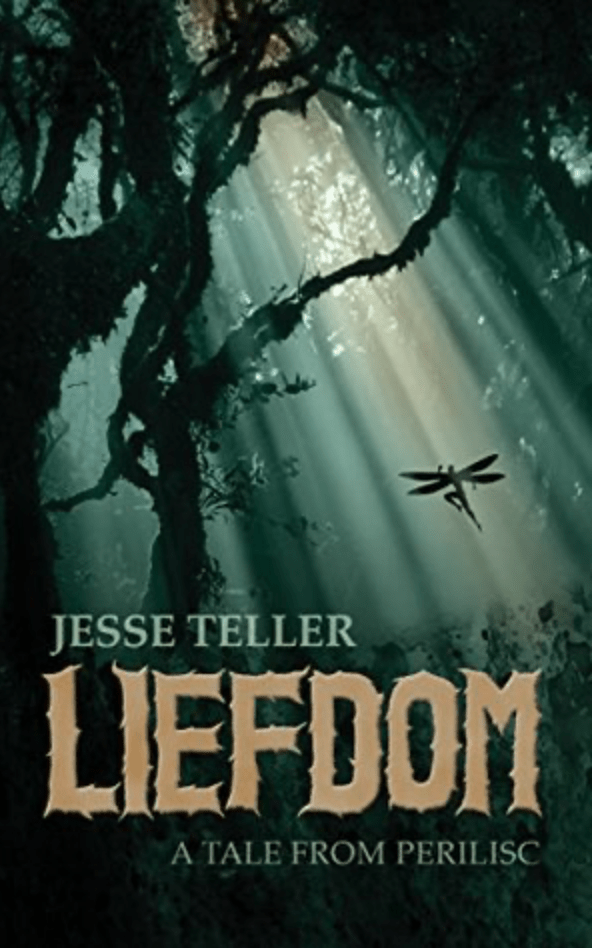
I sent it out in cold submissions and it was brutalized. Nobody saw any potential in it. Agent after agent rejected it. And when the book had been rejected 119 times, it had two fates. Fate #1, I box it up and put it away and maybe someday down the line it sees the light of day. And maybe it doesn’t. Or, I self-publish the book. I had faith in this book. There’s a scene in the movie Walk the Line about Johnny Cash, when he goes in front of a music producer and sings a gospel. If you’ve seen the movie, I’m sure you remember the scene. The producer’s like, I don’t buy it, interrupts him in the middle of Johnny singing about his God. He says, “I don’t buy it.” Johnny gets froggy. But the producer says, “If you were laying in a gutter, and you were dying and you could sing one song before you died, what song would it be?” And Johnny sang “Folsom Prison Blues.” It’s a miracle of a song, launched his entire career. Well if I was laying in a gutter, and I only had one story to tell, it would be Liefdom. So I went with Fate #2, and I put it out and started getting reviews. People were blown away. Liefdom is a success story. It’s the book that refused to die, a book my wife and I believed in, and when you believe in something, you can’t walk away.
Tell me about some of your personal writing pitfalls and what you do to avoid them.
I’m a terrible typist. I never learned how to type in high school or college. I’m constantly looking down at my hands as I’m looking up at the screen. And at first, as I was transforming myself from a storyteller into a novelist, I had to type really slow. It would take me seven hours to write 2,000 words. And I’m talking about seven hours of solid typing. I simply had no idea where the letters were on my keyboard. But as I got more experienced, I started typing faster, my mind started creating story faster. The conversations were happening in my mind quicker than they had before. Passionate arguments between characters would hit the air in real time. And I’d have to fight to keep up with what they were saying, the speed at which they were saying it. I was frustrated and angry at the fact that I couldn’t keep up with my mind as it created. I began to pound on the keys as I poured out my frustration. And the typing got sloppier and sloppier.
Autocorrect is a beautiful thing but certain flaws started to develop. My fingers got used to making certain mistakes. My fingers would fly on a word they had not mastered typing yet and I would move on. My rough drafts are barely legible. And I have to go back and try to make sense of it. My wife reads back everything to me that I’ve written the night before, and she has learned to read a form of English mixed with the howling of a madman. She reads it flawlessly. After having read 5 million words, she knows that language. So her eyes pass over the bad habits of my whirling fingers. And every time the word “and” is supposed to be “and” but comes out “adn” she glides right past it.
My pitfall as a writer is the way I type. From the violent pounding that leaves my fingers and hands aching, to the bad habits of fingers that are trying to create their own language. But this is what editors are for. They catch some of my mistakes, and before we send them the bloody drafts, my wife translates them into English.
What research tips or tricks would you give another writer?
I don’t know if this is an actual research tip. I don’t know how realistic this is for a writer to embark upon. But before I was forced to leave college, I was a history major and a literature major. I was one of those guys that was so excited about his double major that instead of doing any of my gen ed work, I took all the classes in all the things I was interested in right away. No health and math for me. Just Latin American history, military history, Western Civilization history, African American literature, literature and playwrights, all this kind of stuff. As you can imagine, creative writing. I majored in literature and history because I knew that one day I would be writing fantasy.
Hours and hours and hours of reading, note taking, test taking, one class after the next, one semester after the next. And though I never did get those math requirements, and I never did master the French language, I know the history of the Jewish people from Abraham to the liberation of the death camps. I know the inbreeding of the royal family that resulted in King Carlos the Bewitched. I know William the Conqueror. I know the ranks of warriors in the Aztec societies. Never did take that health class they make you take, where you find out your percentage of body fat, but I do know all the great Greek plays.
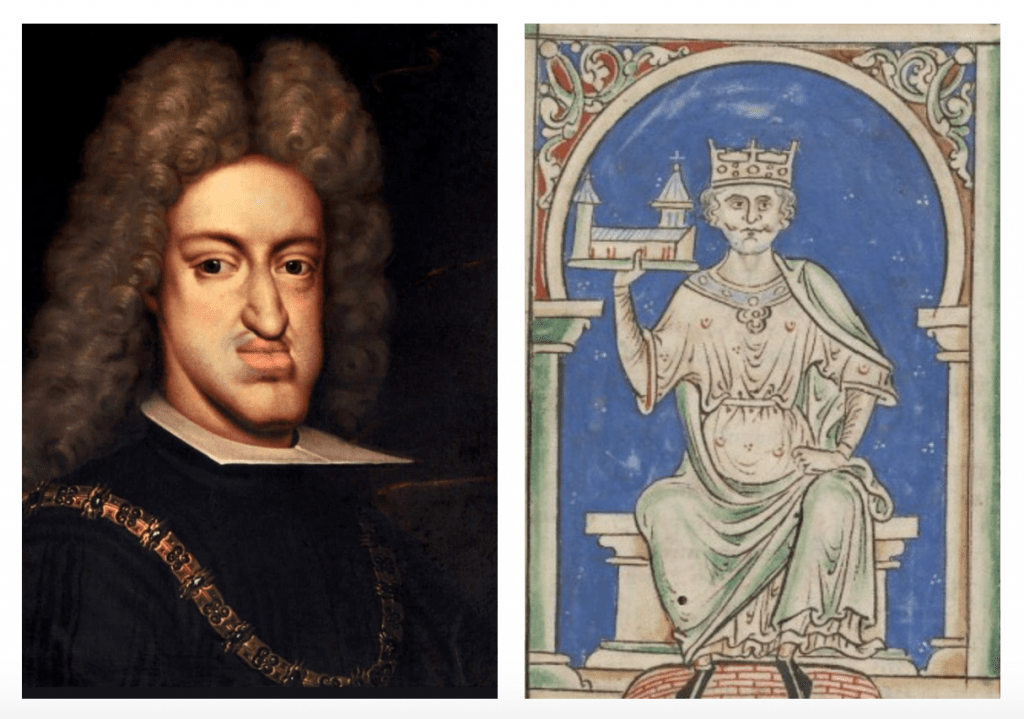
I guess what I’m saying is that educating yourself on the basics of all history and literature can make you what you need to be as a writer. Focusing on the way the world organized itself and the way that organization played out, meticulously studying how a poem was written and how a play is displayed on a stage, can bring you closer to your work and enrich the things you’re trying to write in ways that sometimes a Google search just can’t do.
When does research matter, and how do you incorporate it into your books?
In my books, there’s so much fantasy, so many strange and odd things going on, that I don’t find myself researching very often. My cultures, my governments, they’re all so foreign that I don’t really want to look up historical figures and governments and cities, because I don’t want them tainting my world. However, there are certain things you have to know if you’re going to do the job.
Best example is you have to know how a sword is forged, how yeast bread is made, how unleavened bread is made, how crops are tilled, and the oddest one for me was you have to learn how a quarry operates. One of my books takes place in a quarry town. I needed to know what the tools look like, what the rigging look like, I needed to know what all of that was like.
So I did some research, I looked for a book on quarries and how they were run, the mechanics of actually working in a quarry. And I wanted a book to hold in my hand. So I got on Amazon and I ordered a book. I found the perfect one and I paid almost $20 for it. When it got to my house, it was a pamphlet that was about 25 pages long. After I stomped around, yelled, threw it across the room a few times, I remember I actually bent over while it was on the ground and looked at it. Then I opened my mouth and a hallucination I had showed me actually breathing fire on the book. It was very cool. Tantrum spent, I read the book, as you can imagine it didn’t take much time. There was a shocking amount of information in my 30 page pamphlet, 25 page, I don’t know, whatever I said. I don’t know. It happened years ago. I learned what I needed to know, wrote the book, turned out great.
Time to talk about BOOKS
What’s your favorite book as a child?

When I was a child I was dealing with a house filled with hate, a family at war, a riotous mind, hallucinations, and memories of blistering child abuse. I had learned by the age of eight how to navigate some of that. And that’s when I found the book The Count of Monte Cristo. The alternate personality in my mind that was giving me hallucinations created a cell for me to live in, and a mentor who lived in the cell next to mine. Just like in The Count of Monte Cristo, that mentor taught me how to navigate my life.
He was my teacher, and he brought me some modicum of sanity. He taught me how to talk to girls, how to understand cultures that were not my own, how to fight, how to love. He taught me how to talk to my parents. He taught me how to deal with my abuser. This mentor trapped in the cell next to mine became the only cord of sanity in my life. When I asked him his name, he wouldn’t give it. And when I reached a certain age, he disappeared. And every year, I read The Count of Monte Cristo, because many people think that book is about revenge. But to me, that book was not about revenge. To me, that book was about isolation, in a cell, and a teacher who saved my life, my sanity, and put me on the path to manhood.
What protagonist/antagonist in a book do you relate to the most, and why?

There’s a book by Richard Nell. If this name is new to you, write it down and never forget it. He’s written a trilogy called the Ash and Sand series. He’s pretty well known for it. It’s a masterpiece. He’s written other work that I never hear anybody talking about, but everybody should shout about this all the time. There’s a novella called “Rebellion of the Black Militia.” The main character is being trained by a master soldier on the fundamentals of fighting in an army. He’s also mentored by this master soldier. His days are filled with drills and exhaustion. His body hurts all the time. He needs more water than he’s getting. He needs more sleep than he’s getting. And he has this leader looking down on him, guiding him, training him.
This master trainer has a goal in mind for this character that he’s not betrayed yet. He’s taken this character on as a project, and he is slowly making him into what he needs to be. The character that’s being trained reminds me of me. Slowly being made into a power to be reckoned with. The trainer is the self-published fantasy industry, because it’s brutal and ruthless, and it works you constantly. And it makes you beg, and it gives you praise, and there’s challenges constantly. And at the end, there’s a great battle to fight. At the end, you’ve been crafted into a professional writer, a successful writer. One day my training will come to an end. One day, the fantasy publishing industry will have slowly made me into a successful author.
Hobbies & All Things Weird
When you aren’t writing, what can you typically be found doing?
Well the easy answer is sleeping, right? Writers need a lot of sleep. Madmen need a lot of sleep. So the easy answer is sleeping. I’ve made a hobby out of it. It also answers the question of what I like to do that I’m not good at. But if I’m being serious, my favorite hobby is cooking. I like to find new recipes hidden away in my mind and then we name them fun names around the kitchen table.
I’ve got Rock n Roll Rice. For every cup of rice you have, you add a can of nacho cheese sauce. Dice up some carrots and a sweet onion, and bake them for about 25 minutes. You need some bacon. When you’re cooking the rice, I use Minute Rice. Don’t make fun of me. When the rice is in the water, I have infused the water with about 2 teaspoons of rosemary, and that flavor will soak into the rice. Mix all that together. It’s a big hit.
I made this one meal, you take a can of navy beans, kidney beans, black beans, chili beans, pork n beans, how many beans is that? What am I missing? Oh yeah, I forgot pinto beans. Slice smoked sausage into coins. Dice some ham and a white onion. Mix all that up in a big cast iron pot. Bring to boil, let simmer for two and a half hours, and you have Stonefist Stew. Now Stonefist is a tribe in my work. This is a stew that is only cooked on the battlefield and on long hunting trips. It’s a recipe that’s been handed down for 2,000 years, father to son, uncle to nephew. Not until the end of that 2,000 years had a woman ever tasted this stew. My wife made me name it Stonefist Stew because she refused to let me call it by the name the Stonefist men have been calling it for 2,000 years. My sons were on board for the authentic name, but my wife refused to eat anything called Fart Stew.
Sarah’s note: I’m totally on board with refusing to eat anything named “fart stew.”
I am a firm believer that we all have to be a little weird to do what we do. What makes you delightfully wacky?
Delightfully wacky, well, the insanity is a thing. We have a title we like to throw around the house where the kids and the wife call me the Lunatic of Fantasy. If they can call Joe Abercrombie Lord Grimdark, and Anna Smith Spark the Queen of Grimdark, then I think I can be the Lunatic of Fantasy. So there’s all that madness that you can count as wacky. But I think my obsession with knives makes me pretty weird. I’ve got one clipped to the inside of each pocket, a foot-long blade by the bed, each of my sons have at least two blades, and every now and then I’ll just go buy another blade.
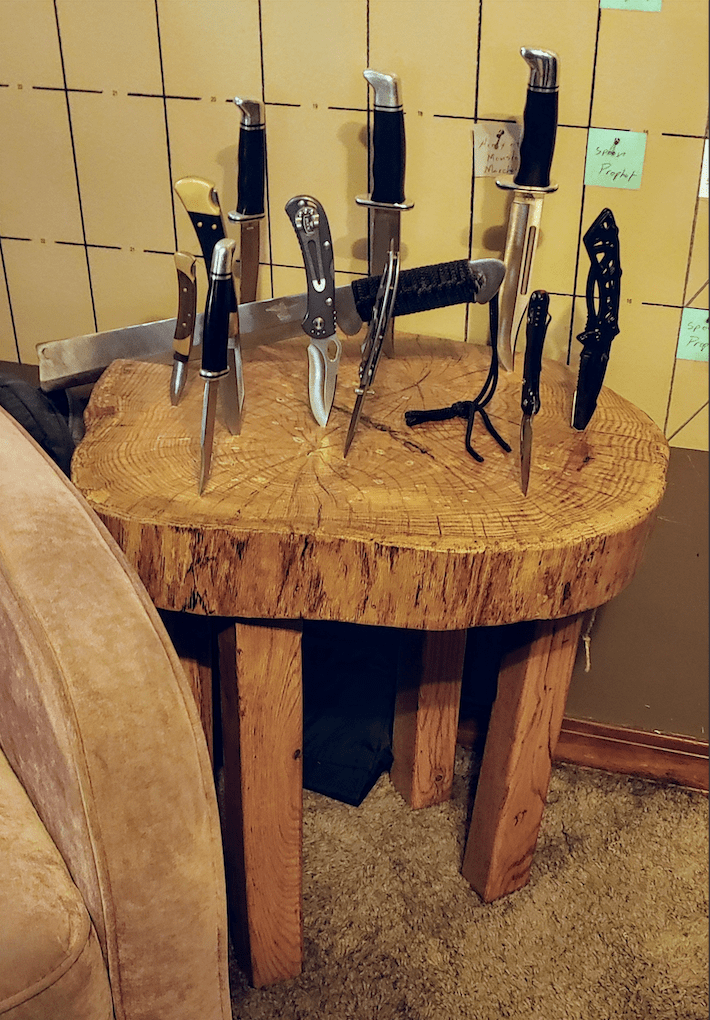
Pocket knives have been a part of my life since I was five or six. I’ve always had one, either for personal defense or just for comfort reasons. I grew up in the inner city of Milwaukee, in gangland neighborhoods. Everybody had a knife. The gangsters in my neighborhood had Bowie knives hanging off their belts. You saw it everywhere you went. Well my knife obsession followed me outside of those streets, and has followed me to my office.
If you watch a Netflix special called The Standups, you’re gonna find a genius comedian called Kyle Kinane. I was watching his set when he started talking about his knife table. The civilized of you will think this is a table on which to display your knives. But those of you with a barbarous lean will know this is a table you stab your knives into. I watched the special with my wife, and just let it go by. But about two months later, one of my alternate personalities came out and said to her what she had been waiting for for two months, “We gotta get a knife table for my office.” So if you go into my office, you’ll see a little table by the reading chair where about nine knives have been stabbed into the table. There’s even a machete that was slashed through the air in true barbaric form and is now embedded into the edge of the table. It’s really quite something to see.
If you were an animal, what would you be and why?
I wrote this series called The Treefrog Trilogy. It hasn’t been released yet. I’ll start releasing that series when The Madness Wars is done, so expect the first book in that series on October 5, 2021. Anyway, it’s got a group in it called The Ramblers. The Ramblers work with a wizard who has the ability to enlarge creatures. All the Ramblers are cavalry men and women, and they all ride different steeds. We’ve got a guy who rides a dead horse. Don’t picture a zombie. Picture ghost. But his armor and saddle ride his spectral form. So the rider will straddle a saddle and a pile of armor at his feet, and out of the ground will rise a ghostly horse. All the armor will fly up, and the saddle will fly up, and off he’ll ride.
The animal I’d choose to be, though, is not a dead horse. There’s a character who rides a massive fire ant. A character that rides a lion the size of an elephant. We have a hyena. And we have a hornet. At one point in the trilogy, one of these mounts dies and is replaced by a simple dog. It’s at this point I realized just how awesome a canine is. Fast, loyal, powerful, friendly, with powerful senses, instincts, I’m gonna mention loyalty again. There’s a lot of animals in the animal kingdom, but if I had my choice of any animal I could be, my answer would be a dog every time. You pick the breed. Just don’t pick one of those little white ones.
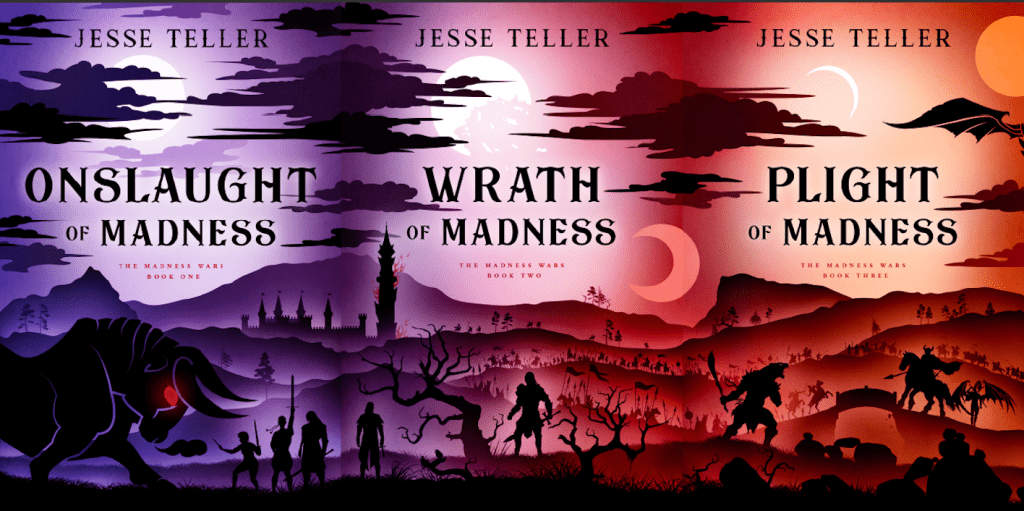
What’s your favorite swear word and why?
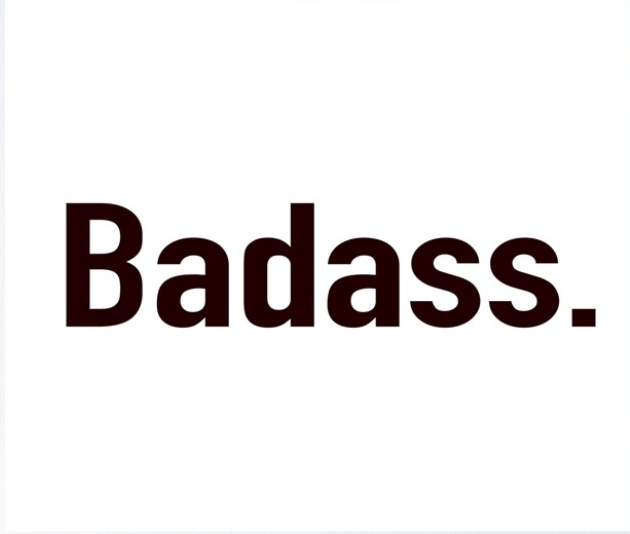
My favorite swear word is badass. I see badasses everywhere I go. Just about everybody I’ve ever met is a badass in some way. See, I’m really big on praise. I like to make people feel good about who they are and what they do. And in doing so, I use the word badass quite a bit. One of the strongest, most powerful women I ever knew was my wife’s grandma. She was deep in her 70s, a sweet Catholic woman, that I would often look at and call a badass. She’s passed now, but I can still see the smile on her face when I said it. I’ve told my sons they are badasses so often that they don’t even blink anymore. Everybody you have ever met, and everybody you will ever meet, is a badass in some way and at something. I think you should tell them next time you see them. The more you tell people they are a badass, the more they’ll ask you why. And the more they ask you why, the more you’ll get to pick out a quality they have that is in some way impressive. So if every day you tell one to five people they’re a badass, you’re gonna find yourself getting better and better at seeing the greatness around you.
Any final thoughts?
I want to thank you for hosting this interview. It has given me the chance to get more personal than I ever have been anywhere else. I said things in this interview, admitted things about myself, that I have never told anybody outside of a chosen few in my personal life. This interview is me at my most revealed. So thank you for that.
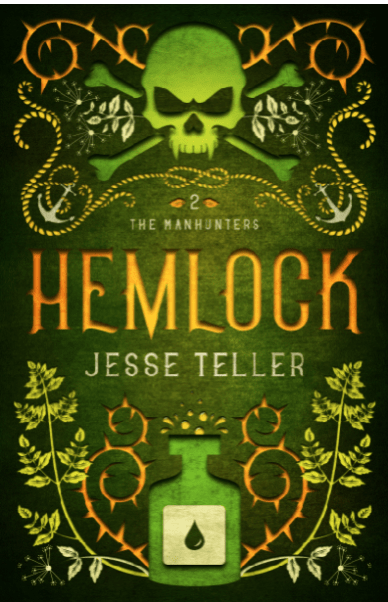
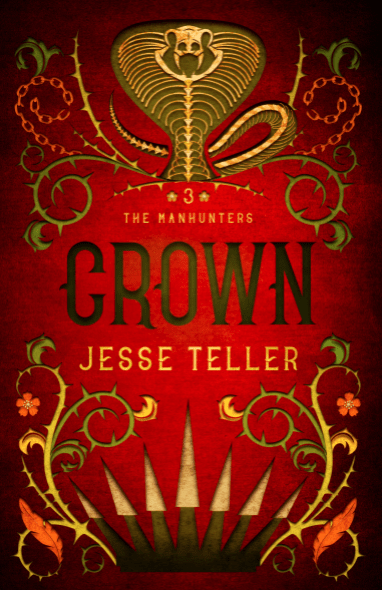
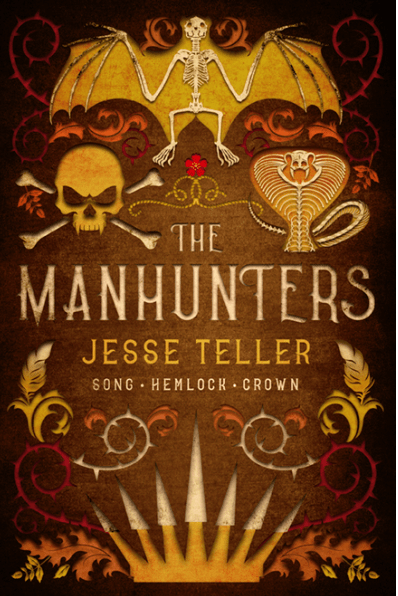
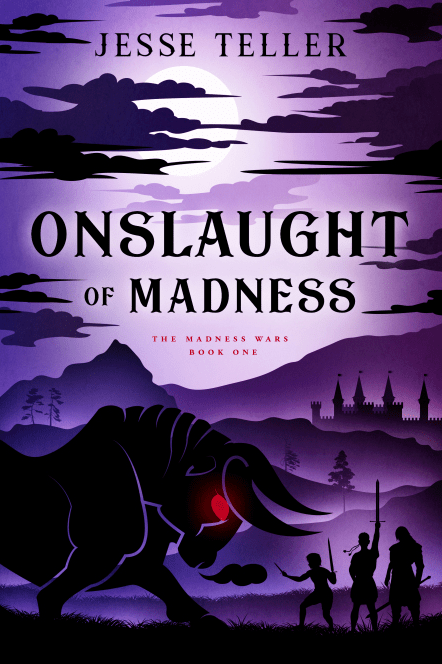
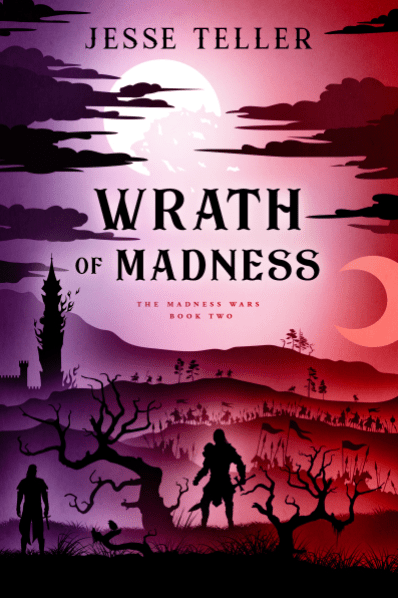
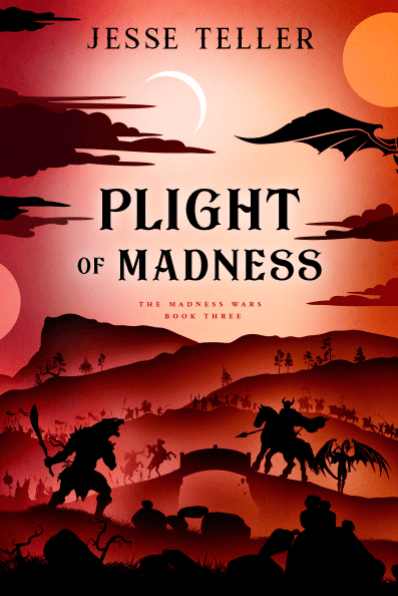
0 Comments